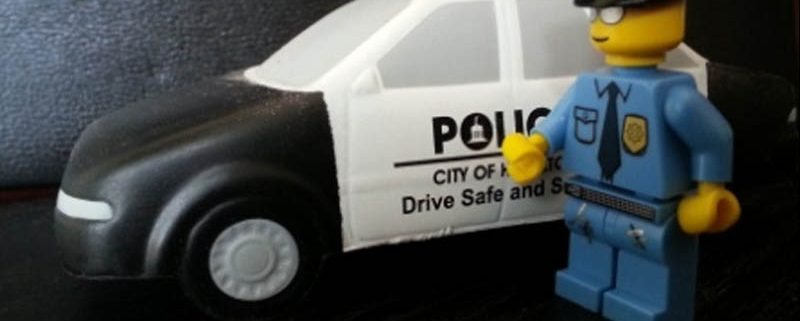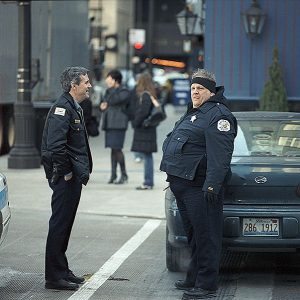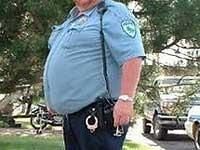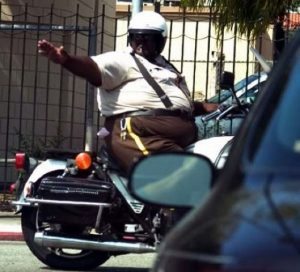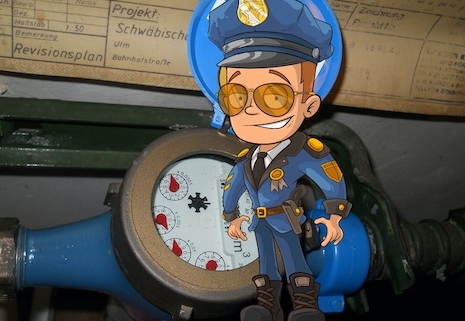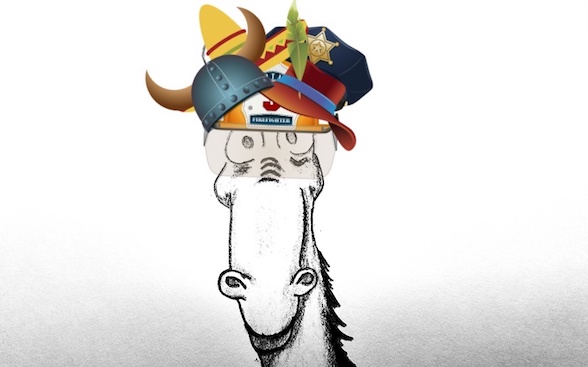Officer Idu Thebestican feels as if he faces a no-win situation each day he puts on his uniform, and he stopped by today to tell why he feels that way. Here’s what the officer had to say …
Today I found a lost grandmother. She has Alzheimer’s and wandered off into a wooded area near a rocky and steep ravine. I sat with her and held her hand until her family arrived to take her home. You didn’t see that.
I got pretty banged up while breaking up a nasty fight between two large men. They were angry over a ref’s call at a kid’s soccer game. You didn’t see that.
A convenience store was robbed by two masked men carrying handguns. I caught one of the robbers after a five-block foot pursuit. He fired a shot at me but missed. Luckily I was able to wrestle the gun from his hand. You didn’t see that.
You didn’t see that!
Two cars crashed head-on, killing everyone inside. I helped remove the bodies, including one of a tiny baby. You didn’t see that.
A bloody face and a broken arm on an eight-year-old girl. Her intoxicated father did that to her and I was there in time to stop him from killing his daughter. I took the punches that were intended for her. You didn’t see that.
I was stabbed and cut in the side by a woman trying to stop me from arresting the husband who’d just beaten her until she was black and blue. It took 30 stitches to close the wound. You didn’t see that.
A drunk man was trapped inside a burning house. I ran in and pulled him out. Burned my hands and face a bit, but the man survived. You didn’t see that.
I changed a flat tire for two elderly woman who were on their way to Florida. It was nearly midnight and they were stranded and alone on the side of a highway. You didn’t see that.
I worked three straight shifts without sleep or meals while trying to catch a guy who’d raped and murdered a teenager. You didn’t see that.
I bought a meal for a homeless man, and then joined him for lunch. He’d served in the military and suffers from severe PTSD. You didn’t see that.
I stopped to throw a few footballs with some young boys. You didn’t see that.
I adopted a needy family at Christmas time and bought them gifts. My wife and I delivered a holiday meal to them. You didn’t see that.
But you chose to see me when I responded to 911 call in your neighborhood, with all of your friends standing around, and you closed in on my personal space with your face just inches from mine to shout, “Murderer!” even though I’ve never killed anyone.
You threw rocks at me while I patrolled your street, trying to keep you safe from robbers, burglars, and killers.
You spit on me while I was arresting a guy in your neighborhood. It didn’t matter to you that he’d just committed an armed robbery of an old lady and that he’d roughed her up and fondled her “private areas.” To you, though, I was the bad guy. “F*** You! All cops are murderers!” you screamed at me while impressionable little children looked on. Those kids had no way of knowing that I’d never pulled my gun from its holster other than to clean it or qualify at the range.
A police officer a thousand miles away did something to dishonor HIS badge, yet you blame me. Why? I didn’t come to arrest you when I caught your friend climbing in that lady’s bedroom window. I don’t run out to punch a random doctor in the face simply because a physician somewhere in Maine botches a surgery on a cop I don’t know personally. It’s not supposed to work that way in a civilized society. Besides you’ll never catch me defending a cop who knowingly breaks the law.
From A Cop’s Perspective: What You Didn’t See
Here’s what it’s like from my point of view.
When I’m off duty and our kids are on the field playing sports, or we’re both sitting side-by-side at a community picnic and it’s as if we’re best buddies. But the moment I put on the uniform I’m suddenly the enemy. Your enemy. And it’s for no reason—your transformation—other than my clothing and something I didn’t do, that your hatred for me begins to fester and boil over.
Believe me, I don’t change. But you do.
And I see it.

